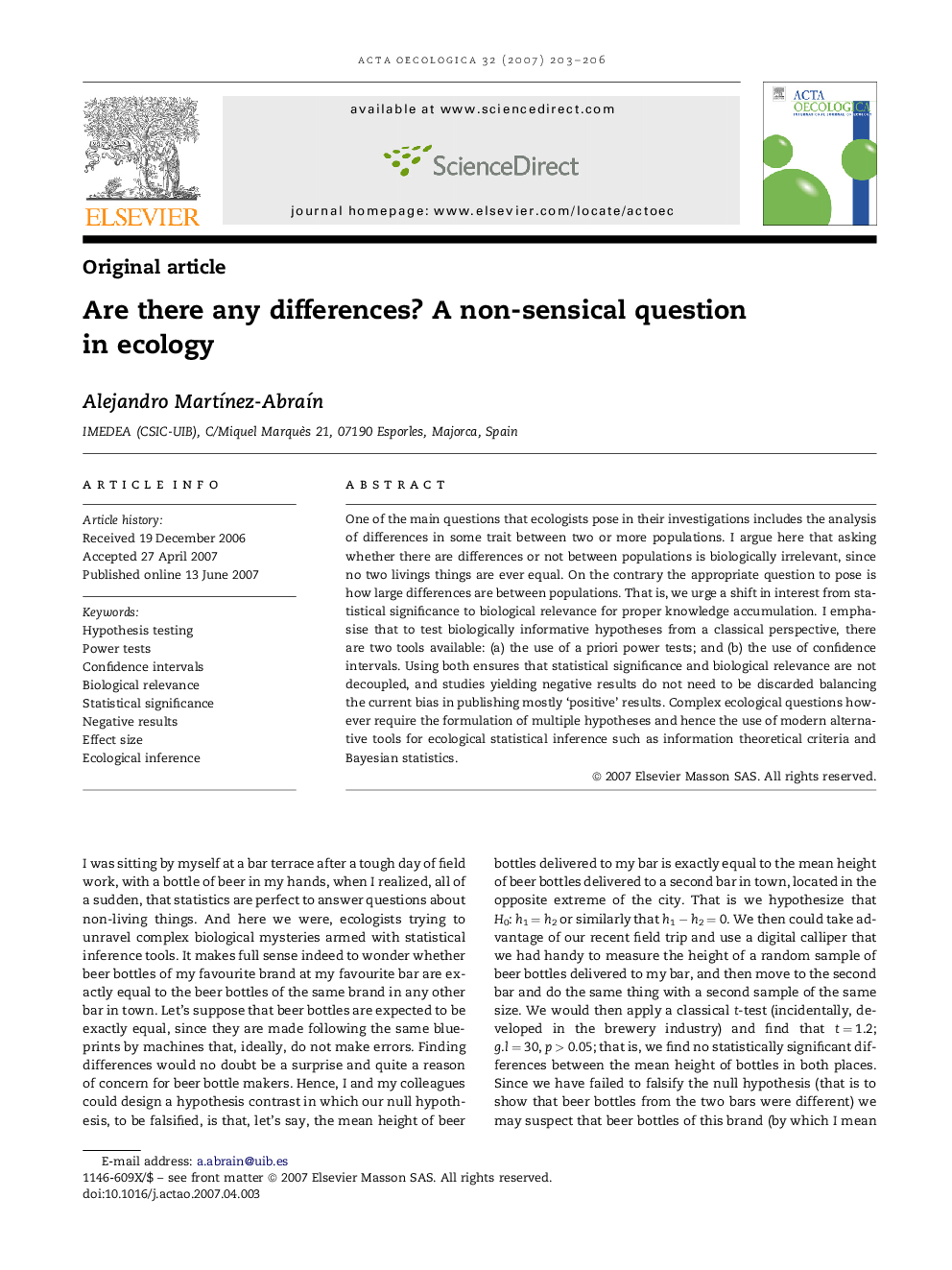| Article ID | Journal | Published Year | Pages | File Type |
|---|---|---|---|---|
| 4381539 | Acta Oecologica | 2007 | 4 Pages |
Abstract
One of the main questions that ecologists pose in their investigations includes the analysis of differences in some trait between two or more populations. I argue here that asking whether there are differences or not between populations is biologically irrelevant, since no two livings things are ever equal. On the contrary the appropriate question to pose is how large differences are between populations. That is, we urge a shift in interest from statistical significance to biological relevance for proper knowledge accumulation. I emphasise that to test biologically informative hypotheses from a classical perspective, there are two tools available: (a) the use of a priori power tests; and (b) the use of confidence intervals. Using both ensures that statistical significance and biological relevance are not decoupled, and studies yielding negative results do not need to be discarded balancing the current bias in publishing mostly 'positive' results. Complex ecological questions however require the formulation of multiple hypotheses and hence the use of modern alternative tools for ecological statistical inference such as information theoretical criteria and Bayesian statistics.
Related Topics
Life Sciences
Agricultural and Biological Sciences
Ecology, Evolution, Behavior and Systematics
Authors
Alejandro MartÃnez-AbraÃn,
